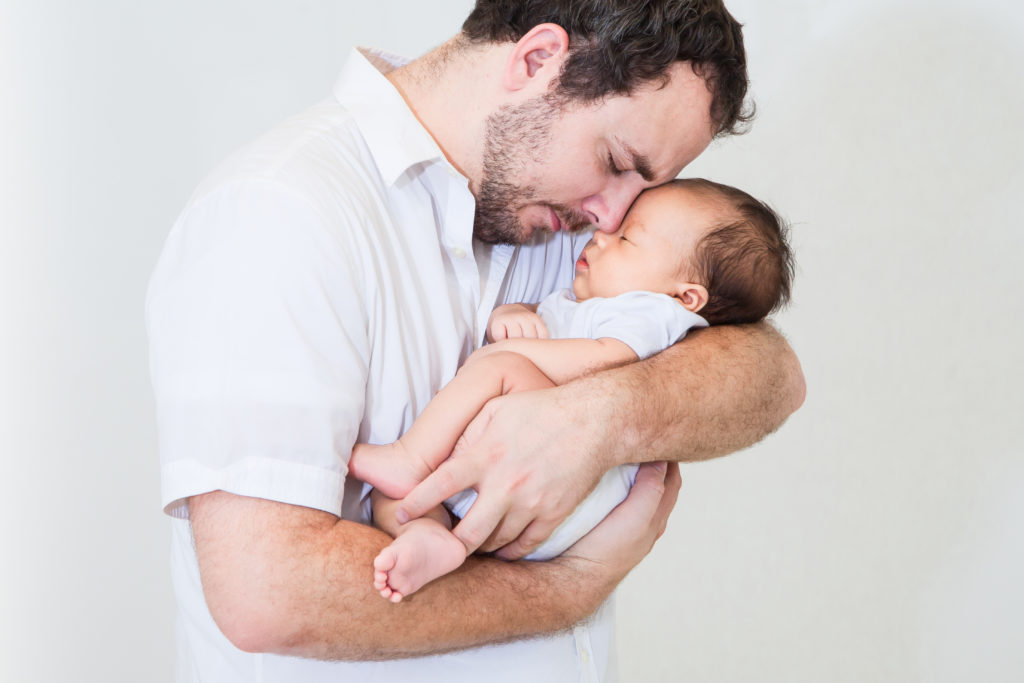Quick Hits
Daily brief research updates from the cognitive sciences

We know that mothers go through multiple physical and psychological changes after birth (and before) including change in brain structures. That may sound surprising to the uninitiated – and it is fascinating. But that has been reasonably well researched.
What, however, has not been well researched, barely at all is that of the father. There have been some psychological studies showing that men do become more caring, but also that their testosterone does also drop. Presumably to help prime the body and brain for more caring – though I reported previously on the complicated role of testosterone.
But is this matched by changes in the brain – here at leading brains we know that if there is a behavioural change there will be a biological, brain, change. And this is precisely what a group of Spanish and US researchers around Magdalena Martínez-García have found out and described in a recently published paper.
The findings are interesting also because they do not show change to some regions we might expect. For example, in mothers changes in the brain limbic regions has been noted. This region is considered our emotional centre so unsurprising. But this region did not seem to change in fresh fathers.
What was, however, seen are small changes in the prefrontal regions, particularly in areas that are associated with something called the default mode network. This is a region that is active when doing nothing but also is involved in so-called mentalizing tasks i.e. being able to think about what other people think – this could be seen as an increase in ability to empathise. Similarly, some of the changes in the prefrontal regions are in regions that are associated with social functions in human beings.
Another area that showed changes was in the visual area – this suggests a change in visual capabilities maybe referring to sensitivity in responsiveness to different visual cues i.e. of a little baby rather than hunting for deer.
The study involved 20 men whose brains were scanned before or after the birth of their first child and a control group of 17 childless men. So, it wasn’t a large scale study but gives us our first glimpse into the changes that men’s brains go through with the birth of their first child.
This hints at increased empathy, changed sensitivity to visual stimuli, and increased social functions. All in pretty good.
On a different note, in case, any of you men are worried, is that men are seen as more positive as fathers, and interestingly “manly” traits (such as strength) are still associated with fathers but also in addition with more caring traits – and this shows in the brains.

Andy Habermacher
Andy is author of leading brains Review, Neuroleadership, and multiple other books. He has been intensively involved in writing and research into neuroleadership and is considered one of Europe’s leading experts. He is also a well-known public speaker, speaking on the brain and human behaviour.
Andy is also a masters athlete (middle distance running) and competes regularly at international competitions (and holds a few national records in his age category).
References
Magdalena Martínez-García, María Paternina-Die, Sofia I Cardenas, Oscar Vilarroya, Manuel Desco, Susanna Carmona, Darby E Saxbe,
First-time fathers show longitudinal gray matter cortical volume reductions: evidence from two international samples
Cerebral Cortex, 2022;, bhac333
https://doi.org/10.1093/cercor/bhac333
More Quick Hits
Your Job Can Protect You From Cognitive Decline
Quick HitsDaily brief research updates from the cognitive sciences f you have the right job that is. First let’s understand what the researchers were investigating. There is something strange going on with Alzheimer’s - we know that in Alzheimer’s...
How Nature Is Good For Your Health
Quick HitsDaily brief research updates from the cognitive sciences have reported multiple times how nature is good for your health. For example, in my article on the simple benefits of walking I also show how nature helps in multiple ways such a...
Do Your Chores, You’ll Live Longer – And Better!
Quick HitsDaily brief research updates from the cognitive sciences o, I haven’t been paid to write this by irate spouses or parents! Fact is doing the chores could be very beneficial to your wellbeing. How so you may ask? Well, I admit I have...
Why Having a Hit Reduces Creativity
Quick HitsDaily brief research updates from the cognitive sciences n music this happens often – a band lands a hit but then fails to do anything special again. A well-known occurrence with hits like Tequila in 1958 being the ultimate one-hit wonder...
The Surprising Results Of How Music Reduces Pain in Your Brain
Quick HitsDaily brief research updates from the cognitive sciences hen you’re in pain any form of relief is welcome – we tend to immediately revert to pain killers but there are many other methods of, at least, reducing pain. I have recently...
Smartphones Improve Your Memory
Quick HitsDaily brief research updates from the cognitive sciencesany people believe that using smartphones and other electronic devices is ruining our memories and ability to think or simply use our brains. Research has shown a more nuanced...






